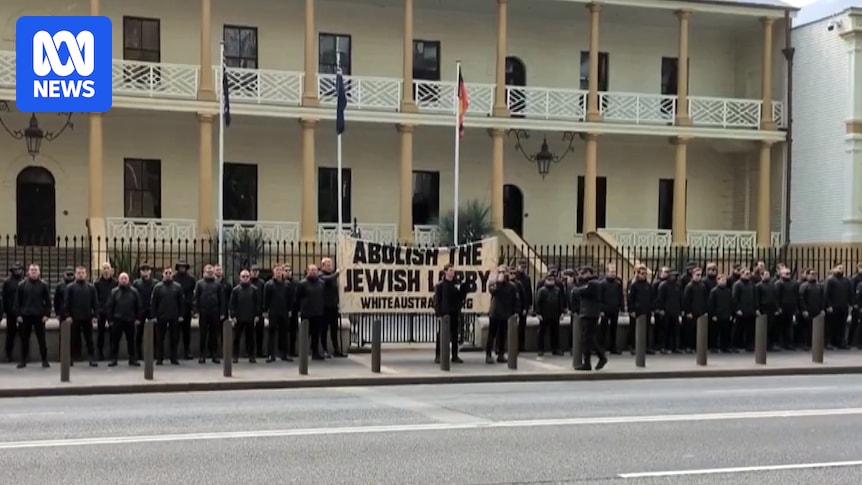
Police and courts in New South Wales (NSW) will soon have enhanced powers to combat public displays of Nazi ideology. This legislative change follows a controversial rally outside the state parliament earlier this month, where participants showcased symbols and slogans associated with Nazi ideology.
On November 8, a group of approximately 60 individuals gathered outside the NSW Parliament. Clad in black, they displayed a banner calling to “Abolish the Jewish lobby” and chanted “blood and honour,” a slogan historically linked to the Hitler Youth. In response, the NSW government announced on Wednesday that it would amend the Crimes Act 1900 to outlaw public conduct indicating support for Nazi ideology without reasonable excuse.
Amendments to the Crimes Act
The proposed amendments will specifically ban the use of Nazi chants or slogans in public. While displaying Nazi symbols is already prohibited in NSW, the new reforms will introduce stricter penalties for related offenses. Individuals found guilty of engaging in such conduct could face up to one year in prison or a maximum fine of $11,000.
Moreover, harsher penalties are proposed for offenses committed near sensitive locations such as synagogues, Jewish schools, or the Sydney Jewish Museum. In these cases, offenders could face up to two years of imprisonment or a $22,000 fine.
NSW Attorney-General Michael Daley stated, “These tough new laws are complemented by the suite of legislation the government has already put in place to protect against racial vilification and hatred.”
Community Support and Concerns
The NSW Jewish Board of Deputies has expressed strong support for the proposed legislative changes. President David Ossip emphasized the threat posed by Nazi ideology and white supremacist groups to communal safety and democratic values.
“These amendments, should they pass into law, are a welcome step in ensuring that the despicable scenes witnessed outside NSW Parliament House are never able to be repeated,” Ossip said.
Meanwhile, NSW Premier Chris Minns highlighted the challenges faced by police in balancing free speech with the need to prevent hate speech. He noted the importance of providing law enforcement with clear guidelines to avoid arbitrary decisions.
“It’s meant that individuals that wanted to hide in the shadows and be a part-time Nazi have realised they can’t,” Minns remarked, underscoring the importance of transparency and accountability.
New Powers for Law Enforcement
The bill will also grant police new powers to order the removal of suspected Nazi symbols. Refusal to comply without a reasonable excuse will be considered an offense, punishable by a fine of up to $2,200 or imprisonment for up to three months. Additionally, police will have the authority to demand identification from individuals suspected of Nazi-related offenses.
Many participants in the recent rally had their faces covered, complicating law enforcement efforts. The existing police powers requiring protesters to remove face coverings could serve as a model for addressing hate speech and racial vilification.
Historical Context and Future Implications
The introduction of these tougher laws in NSW reflects a broader global trend of governments taking a stronger stance against hate speech and extremist ideologies. Historical parallels can be drawn to similar legislative measures in countries like Germany, where the display of Nazi symbols and propaganda is strictly regulated.
As the NSW Parliament prepares to debate these amendments, the outcome could set a precedent for other Australian states considering similar measures. The balance between protecting free speech and ensuring public safety remains a critical issue for policymakers worldwide.
Looking ahead, the effectiveness of these new laws will depend on their enforcement and the continued vigilance of both law enforcement and the community in combating hate speech and extremist ideologies.





